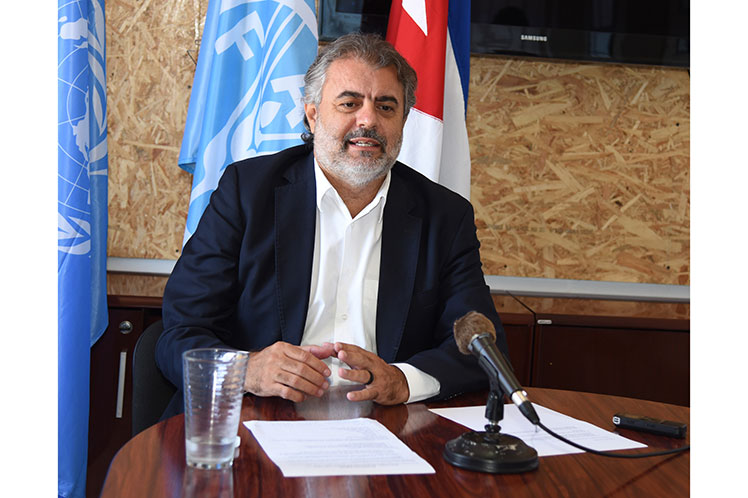The Office of the Food and Agriculture Organization (FAO) of the United Nations in Cuba, along with local counterparts, prioritizes the strengthening of the inclusive agri-food programs against malnutrition and contributes to food sovereignty and security, as well as sustainable development.
FAO’s representative in Cuba, Marcelo Resende, told reporters that they also direct their efforts and cooperation to face climate change, increase resilience and reduce risks in the face of disaster of sustainable productive landscapes.
In response to a question from Prensa Latina, the FAO official said that among the main results of this collaboration is the support for the implementation of the Food Sovereignty and Nutrition Education Plan and the design of the Bill on Food Sovereignty and Food and Nutritional Security, which is expected to be approved by Parliament next month.
Resende stressed that this policy and its legal framework will support the reduction of dependence on imports of food and inputs, and will guarantee, among other aspects, the quality and safety of food, the reduction of losses and mobilize the educational, cultural and communication systems on these issues.
In relation to the challenge of climate change, he stressed that Cuba is implementing, with technical assistance from FAO, the IRES Project, first financed by the Green Climate Fund with non-reimbursable resources in Cuban territories severely affected by drought and in need of expanding their cultivation areas.
IRES, approved in 2020 for its implementation over seven years, will strengthen the adaptation of local food production and ensure food supply and access in rural communities highly vulnerable to the impacts of climate change in the Cuban provinces of Matanzas, Villa Clara and Las Tunas.
pgh/iff/oda/crc










